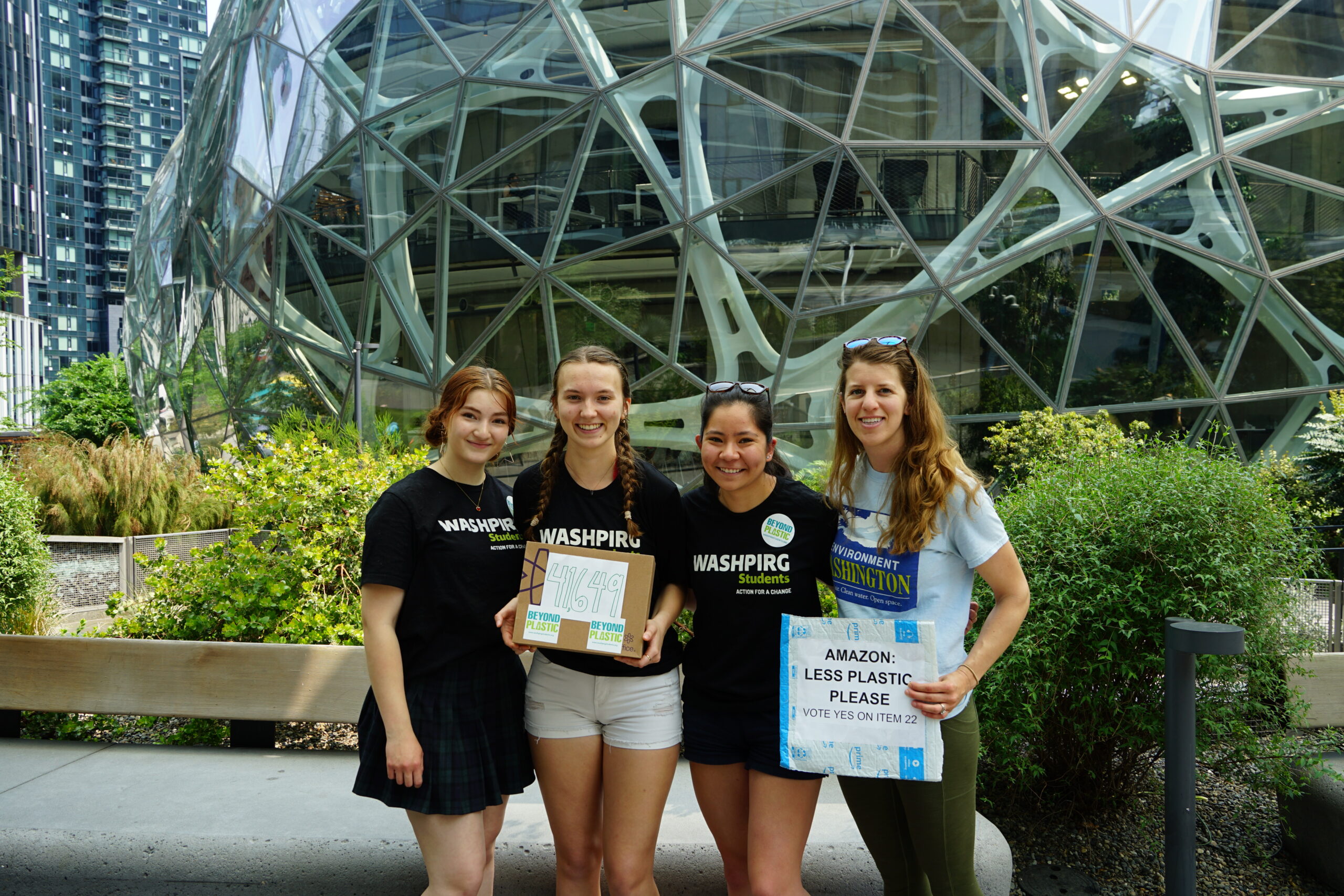I do my best to avoid using single-use plastic: I bring my own tote bags to the grocery store and drink from reusable water bottles and coffee mugs.
I’ve stopped using film wrap in favor of reusable, beeswax-covered fabric and reuse old yogurt containers to store food.
But given the ubiquity of plastic in our society, it is nearly impossible to avoid single-use plastic altogether. When I order anything online, more times than not, I am confronted with a pile of plastic packaging that I often can’t even recycle.
Plastic packaging, including shipping envelopes, bubble wrap and foam, becomes waste as soon as someone opens a package. It litters our communities and harms wildlife. Flexible plastic, including film, grocery bags and packaging, can block animals’ digestive tracts and was found responsible for the largest proportion of deaths of marine wildlife, compared to other types of plastic.
A recent report from Oceana estimates that Amazon generated 709 million pounds of plastic waste in 2021, including waste generated by third-parties who sell their products on Amazon. This is an increase of 18% from 2020.
With online shopping on the rise, this problem is only getting worse: the quantity of packages sent globally is projected to hit 205 million by 2024, nearly doubling the amount of packages sent in 2019.
We need companies to stem the rising tide of plastic waste.
As the world’s largest retailer outside of China, Amazon has the opportunity to be a leader in reducing single-use plastic in its operations.
In some places, Amazon is stepping up to help keep this waste from overwhelming the planet. Nearly three years ago, Amazon announced that it had eliminated all single-use plastic in packaging coming from fulfillment centers in India.
In 2022, Amazon stopped packing products in single-use plastic delivery bags shipped from their European fulfillment centers, and stopped using plastic air pillows in Europe and Australia. Yet, Amazon has not made similar commitments in the United States, its largest market.
In North America, while Amazon has introduced a paper-padded mailer which is recyclable in most curbside programs, many shipments are still delivered in Amazon’s plastic bubble-lined mailers, which are not recyclable in most curbside programs. Even when you drop off Amazon packaging at designated store drop-off facilities, there’s no guarantee it will be recycled.
Wanting to test the reliability of these recycling programs, volunteers with the Student PIRGs put a tracking device in 14 Amazon plastic mailing envelopes, air pillows or grocery bags. Then, the students put each of them in a different store drop-off, recycling take-back bin in five stores across California.
They found that 9 of the 14 plastic mailing envelopes or grocery bags ended up in landfills. The rest went to out-of-state or out-of-country recycling centers.
This experiment, while small-scale, reinforces the idea that we can’t recycle our way out of our plastic problem: We must reduce the amount of plastic we’re using in the first place.
An Amazon shareholder resolution, which is expected to be voted on at Amazon’s annual meeting on May 24th, would require the company to report how much plastic packaging it uses and outline a plan for how to reduce that amount. Shareholders initially voted on this resolution, filed by the nonprofit group As You Sow, in 2021. At that time, it only got 35.5% of the vote, but when it appeared on the ballot again last year, 48.9% of Amazon shareholders voted in favor..
Amazon shareholders aren’t the only people who think that Amazon should cut down on plastic. Environment America, U.S. PIRG, Environmental Action, Oceana, and Change.org have collected nearly a million signatures on petitions calling on Amazon to change its ways. Specifically, the petitions ask Amazon to eliminate plastic from its U.S. shipments, report on and reduce its plastic packaging footprint, and give consumers plastic-free choices for packaging.
Amazon ought to heed these calls to reduce plastic packaging in all of its operations and adopt the proposed shareholder resolution.
This would be the surest way to eliminate unnecessary plastic waste and extend its commitment to protect the planet.
About the author
As an advocate with Environment Washington, Pam Clough develops and runs campaigns to protect Washington’s environment. Pam has worked on issues ranging from wildlife restoration, clean energy and climate solutions, plastic pollution, and clean water. Pam’s organizing has helped reduce kid’s exposure to lead in drinking water in Washington public schools, ban polystyrene foam packaging peanuts and food containers statewide, and win advances in clean building energy standards to advance climate solutions. Pam lives in Steilacoom, Washington, where she enjoys recreating on Puget Sound, skiing and hiking all year, and gardening.

